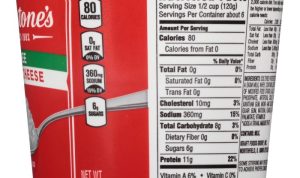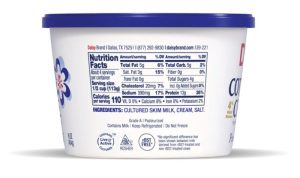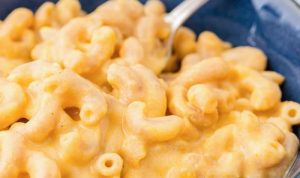Impact on Health and Dietary Considerations
Cheese balls nutrition facts – Cheese balls, while undeniably delicious, deserve careful consideration within a balanced diet. Their nutritional profile, rich in fat and sodium, necessitates mindful consumption to avoid potential health consequences. Understanding their impact on your well-being is key to enjoying them responsibly.Cheese balls offer a concentrated source of calcium and protein, contributing to bone health and satiety. However, their high fat and sodium content can pose challenges for individuals with specific health concerns.
Potential Health Benefits and Drawbacks of Regular Cheese Ball Consumption, Cheese balls nutrition facts
Regular consumption of cheese balls, like any high-fat, high-sodium food, should be approached with moderation. Excessive intake can contribute to various health concerns, while moderate consumption can offer some nutritional benefits. Balancing these aspects is crucial for informed decision-making.
- Potential Benefits: Provides calcium for bone health and protein for satiety. May contribute to a feeling of fullness, potentially aiding in weight management when consumed in moderation as part of a balanced diet.
- Potential Drawbacks: High in saturated fat, which can contribute to high cholesterol and heart disease if consumed excessively. High in sodium, which can elevate blood pressure in susceptible individuals. May be high in calories, contributing to weight gain if consumed in large quantities.
Suitability for Individuals with Specific Dietary Restrictions or Health Conditions
Cheese balls present challenges for individuals with certain dietary restrictions or health conditions. Careful consideration of ingredients and portion size is essential.
- Lactose Intolerance: Most cheese balls contain dairy products, making them unsuitable for individuals with lactose intolerance. Look for lactose-free alternatives if available, but be aware that these may differ in taste and texture.
- High Cholesterol: The high saturated fat content in many cheese balls should be a concern for individuals with high cholesterol. Limiting consumption is advised, and opting for cheese balls made with lower-fat cheeses might be a healthier choice, although this may compromise taste and texture.
- High Blood Pressure: The high sodium content can exacerbate high blood pressure. Individuals with this condition should consume cheese balls sparingly, and consider low-sodium alternatives if available. Reading nutrition labels carefully is crucial.
Incorporating Cheese Balls into a Balanced Diet
Cheese balls can be enjoyed as part of a balanced diet, provided they are consumed in moderation and as part of a broader nutritional plan.
Moderation is key. Consider cheese balls as an occasional treat rather than a regular part of your diet.
A balanced diet includes a variety of foods from all food groups, and incorporating cheese balls as a small part of this plan is possible. Pairing them with fruits, vegetables, and whole grains can help create a more balanced meal. For example, a small serving of cheese balls alongside a salad can offer a combination of flavors and nutrients.
However, always be mindful of portion sizes to avoid exceeding daily recommended limits for fat, sodium, and calories.
Clarifying Questions: Cheese Balls Nutrition Facts
Are cheese balls a good source of calcium?
Yes, cheese balls, depending on the type of cheese used, can be a decent source of calcium, a crucial mineral for bone health. However, the overall calcium content varies significantly based on the recipe.
Can I make healthier cheese balls at home?
Absolutely! You can reduce fat and sodium by using low-fat cheese, reducing added butter or cream cheese, and using herbs and spices instead of excessive salt.
Are cheese balls suitable for vegetarians/vegans?
Most traditional cheese balls are vegetarian, as they primarily consist of cheese and other dairy products. Vegan cheese ball options are also increasingly available, utilizing plant-based cheese alternatives.
How do cheese balls compare nutritionally to other snacks like potato chips?
This comparison depends on the specific cheese ball and potato chip varieties. However, generally, cheese balls tend to be higher in fat and protein but lower in carbohydrates than potato chips. Calorie content can vary considerably.
Cheese balls, those golden orbs of cheesy delight, pack a nutritional punch, often high in fat and sodium. Understanding their caloric content is crucial for mindful eating, and comparing it to similar cheesy dishes helps. For instance, consider the nutritional breakdown of a seemingly similar dish, by checking out the detailed nutrition facts mac and cheese information.
Returning to cheese balls, remember to factor in portion size when assessing their overall nutritional impact.




